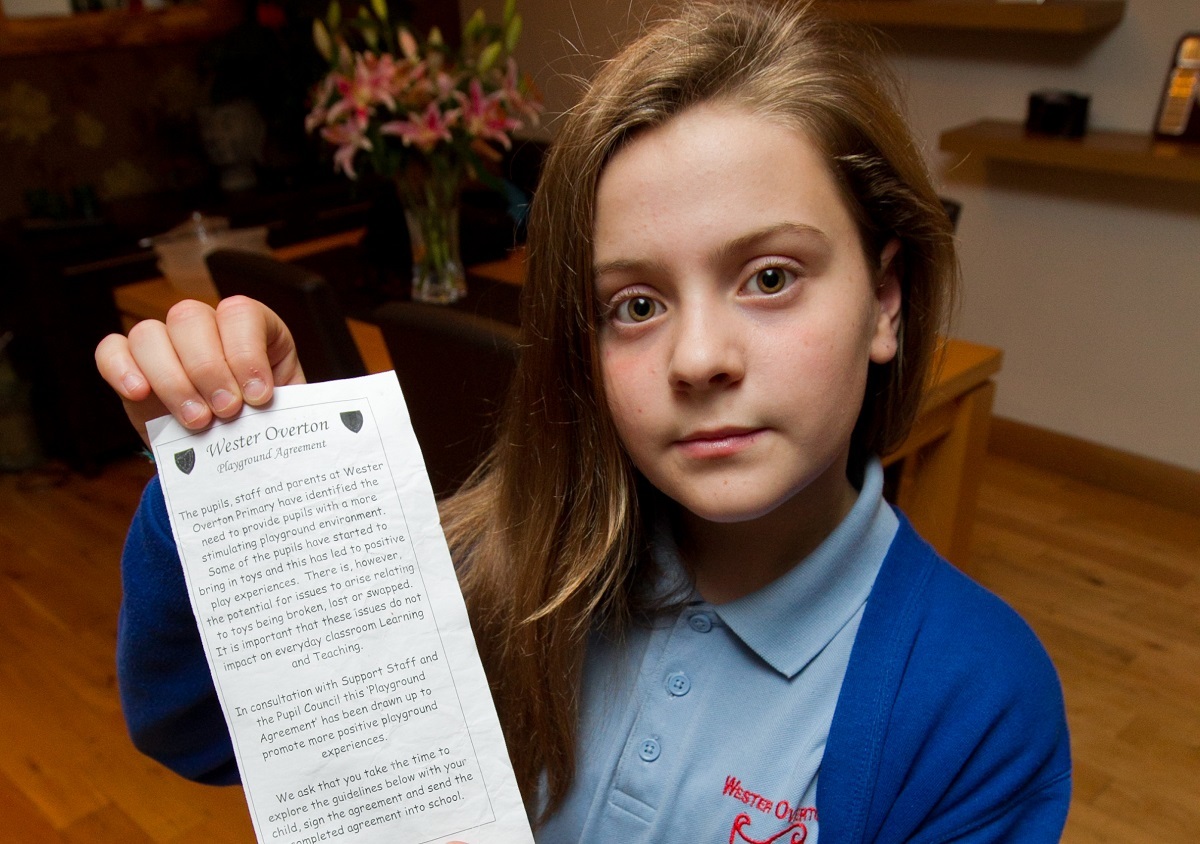
A HEAD teacher has come under fire for urging children to sign “playground contracts” which stipulate they take toys into school at their own risk.
The charter also lays down rules on swapping playthings and absolves the school of blame if toys are lost or broken.
However, parents have branded the agreements sent out by a primary school head in South Lanarkshire as barmy.
And campaigners for traditional values in schools say the jargon-filled agreements are “excessive and disproportionate”.
The agreement states: “If toys are brought into school they may be lost or broken. This is a risk pupils take.
“Children should understand which toys they are allowed to swap and which they are not.
“Only toys that can fit into a school bag should be brought to school.”
Parents have to sign the document after a clause saying: “I have discussed the contents of this agreement with my child.”
And their children some of whom are only beginning to write have to sign their name after a clause saying: “I agree with the guidelines above and have discussed them with an adult.”
The contract also stipulates that no electronic or expensive toys should be taken to school and that only soft balls should be played with in the playground.
It states: “In consultation with support staff and the pupil council, this playground agreement has been drawn up to promote more positive playground experiences.”
Mum-of-three Frances Turner Traill, who has a daughter in P7 at the school, Wester Overton in the town of Strathaven, said: “This really is needless bureaucracy. I won’t be signing it.
“I understand the school doesn’t want electronic gadgets in the playground but kids having to sign contracts?
“At the age of five?
“It really doesn’t make sense. How do you explain to a child that age what a contract is and why they have to sign it when they are only just learning to write?”

And pupil Charlotte Martin, 11, added: “I’m not really sure what a contract is.
“Isn’t that a thing that grown-ups sign when they get a job? When we got this bit of paper to take home I did think it sounded a bit weird so I actually stuck it in the bottom of my bag!
“But my dad found it when he was looking for my homework.
“I don’t really think you need to sign something to say that you shouldn’t take expensive stuff to school or that you won’t go to the teachers if your toy gets broken. I think kids know that already.”
Norman Wells, director of the Family Education Trust, described the contracts as “insulting”.
He said: “Parents are well aware of the risks their children take when they bring a toy into school.
“It is something of an insult to suggest they won’t have warned their children that it might get lost or damaged.
“Obviously the school can’t be held responsible for the safety of any personal property brought on to the premises but that can easily be explained to parents without resorting to contracts.
“Quite apart from being excessive and disproportionate, contracts of this kind can come across as uncaring and hard-hearted as though the school is completely washing its hands of any responsibility.”
The contracts at Wester Overton appear to be an extension of a “playground charter” initiative in place in most primary schools which enshrines a child’s right to play under UN guidelines.
It’s not know if any other schools have adopted the initiative.
However, the Education Scotland arm of the Scottish Government said it was not aware of playground contracts being in force outside South Lanarkshire.
Wilma Bain, head of education at South Lanarkshire Council, said: “This playground agreement is aimed at ensuring that pupils have a positive playground experience, have more fun and take responsibility for their belongings and respect those of other pupils.”
She claimed there had been a “positive response” to the contracts from most parents and said a majority of the contracts had been signed and returned.
Under the law, teachers have the right to confiscate or dispose of a pupil’s toys and gadgets as a disciplinary penalty, as long as it is deemed reasonable.

Enjoy the convenience of having The Sunday Post delivered as a digital ePaper straight to your smartphone, tablet or computer.
Subscribe for only £5.49 a month and enjoy all the benefits of the printed paper as a digital replica.
Subscribe